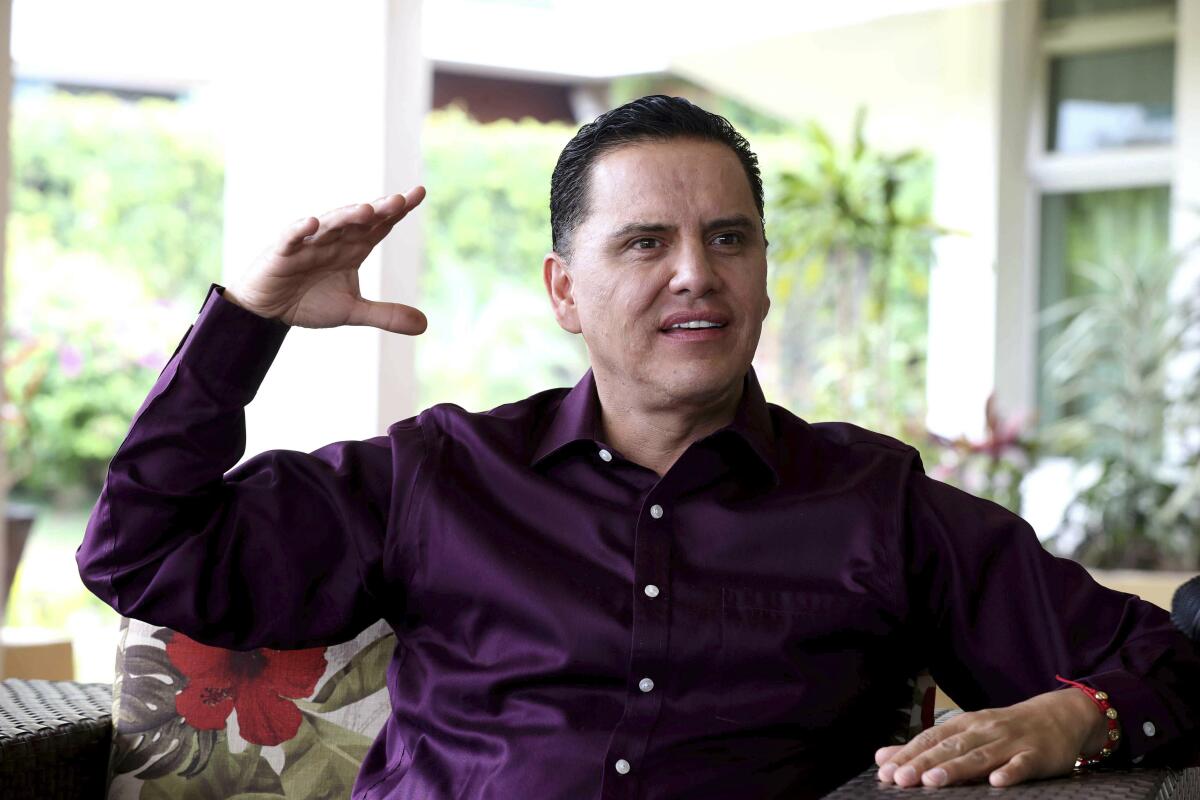Charged with corruption, an ex-governor from Mexico is barred from entering the U.S.

- Share via
MEXICO CITY — The U.S. State Department announced Friday that a former governor of Nayarit state in western Mexico was involved in “significant corruption,” an official designation that bars him and family members from entering the United States.
Roberto Sandoval Castañeda, who served as governor from 2011 to 2017, faces various corruption investigations in Mexico, but he has a court order blocking his detention. He has denied any wrongdoing.
The U.S. Treasury Department already slapped sanctions on Sandoval Castañeda last May, blocking his U.S. assets.
As governor, he “misappropriated state assets and received bribes from narcotics trafficking organizations … in exchange for information and protection,” U.S. Secretary of State Michael R. Pompeo said in a statement Friday.
He said the payoffs came from the Jalisco New Generation cartel and the Beltran Leyva organization.
The new corruption designation rules out any U.S. visas for the ex-governor, his wife and two children.
Sandoval Castañeda was a close associate of Edgar Veytia, a former attorney general of Nayarit who last year pleaded guilty to drug trafficking charges in the United States and is now serving a 20-year sentence.
Tiny Nayarit state, with a population of 1.1 million, is known for its scenic Pacific coastline, a popular tourist destination dubbed the Riviera Nayarit. Officials say the state is also a key drug-trafficking corridor.
Sandoval Castañeda is among at least nine ex-Mexican governors facing charges or already convicted of crimes. Critics of the Mexican political system have long asserted that being a governor or other high-ranking official amounts to a license to steal.
The problem of rampant graft in Mexico was a major factor in the landslide election in 2018 of President Andrés Manuel López Obrador, who ran on an anti-corruption platform.
Times staff writer Tracy Wilkinson in Washington and special correspondent Cecilia Sanchez in Mexico City contributed to this report.
More to Read
Sign up for Essential California
The most important California stories and recommendations in your inbox every morning.
You may occasionally receive promotional content from the Los Angeles Times.










